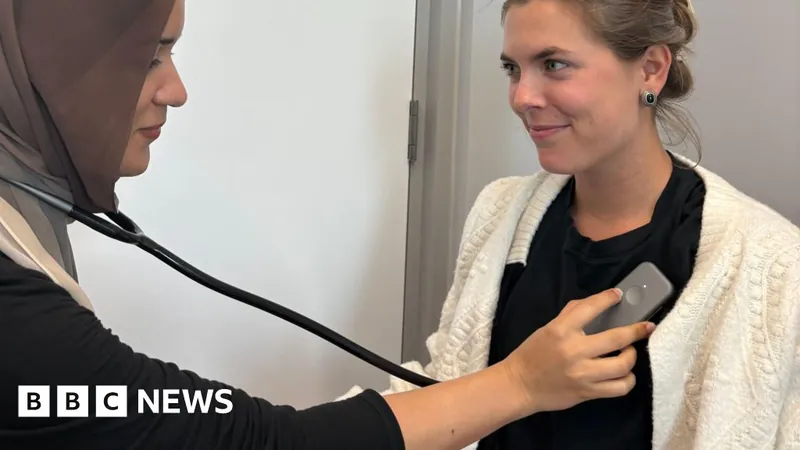
The Surprising Truth About Cardiovascular Screening: No Impact on Death Rates for Men Aged 60 to 64!
2025-08-30
Author: Nur
Key Insights on Heart Health and Screening
In an eye-opening new study, the DANCAVAS 2 trial reveals that inviting men aged 60 to 64 for comprehensive cardiovascular screenings did not lead to a significant reduction in death rates. This challenges long-held beliefs about the benefits of early detection in preventing cardiovascular disease (CVD).
What the Study Found
Conducted in Denmark, the research included over 31,000 men randomly assigned to receive either screening invitations or no invitations at all. After nearly seven years of follow-up, mortality rates remained nearly identical: 9.3% for the screened group versus 9.9% for the control group. Despite some men experiencing improved preventive care—like statin prescriptions—the overall impact on mortality was negligible.
The Bleeding Risk—A Warning Sign
Interestingly, those invited for screening faced a higher rate of severe bleeding complications, raising concerns about the blanket use of aspirin for primary prevention. Researchers suggest that aspirin therapy should be approached with caution for this age group, as the risks may outweigh the potential benefits.
A Wider Perspective Needed
Lead researcher, Professor Axel Cosmus Pyndt Diederichsen, noted that while screening for older men showed some promise, the lack of significant benefits in younger cohorts raises questions about the most effective age to commence regular heart screenings. He hinted at the possibility that a targeted approach towards slightly older men could yield better results.
Future Directions for Research
With the DANCAVAS 2 trial focusing exclusively on men, there's a call for future studies that include women and varied age groups. By expanding research efforts, scientists aim to discover if certain demographics might indeed benefit from population-wide cardiovascular screenings and save lives.
Conclusion: Rethinking Cardiovascular Screening
The DANCAVAS 2 findings urge a reevaluation of current screening strategies, particularly regarding who should be targeted for early intervention to prevent cardiovascular disease. As the medical community delves deeper into this topic, the quest for more effective prevention strategies continues.




 Brasil (PT)
Brasil (PT)
 Canada (EN)
Canada (EN)
 Chile (ES)
Chile (ES)
 Česko (CS)
Česko (CS)
 대한민국 (KO)
대한민국 (KO)
 España (ES)
España (ES)
 France (FR)
France (FR)
 Hong Kong (EN)
Hong Kong (EN)
 Italia (IT)
Italia (IT)
 日本 (JA)
日本 (JA)
 Magyarország (HU)
Magyarország (HU)
 Norge (NO)
Norge (NO)
 Polska (PL)
Polska (PL)
 Schweiz (DE)
Schweiz (DE)
 Singapore (EN)
Singapore (EN)
 Sverige (SV)
Sverige (SV)
 Suomi (FI)
Suomi (FI)
 Türkiye (TR)
Türkiye (TR)
 الإمارات العربية المتحدة (AR)
الإمارات العربية المتحدة (AR)